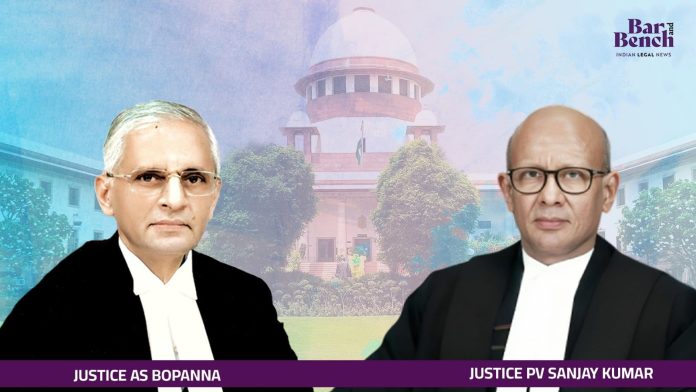New Delhi, Apr 2: In a significant development, the Supreme Court of India has decided to examine the issue of whether Muslim women have the right to unilateral divorce through Khula under Islamic law. The apex court issued notice in an appeal against two Kerala High Court verdicts that affirmed the absolute right of Muslim women to seek unilateral and extra-judicial divorce through Khula.
A bench comprising Justices AS Bopanna and PV Sanjay Kumar has sought the response of the wife in this matter. The decision to grant permission to file the Special Leave Petition (SLP) and to condone the delay signifies the importance the court attaches to this issue.
Khula, as per Islamic law, is a form of divorce initiated by the wife, wherein she seeks release from the marriage. The Kerala High Court, in its judgments, upheld the right of Muslim women to invoke Khula without the need to approach the court if the husband refuses. The court emphasized that it cannot assume the role of guardianship over adult women and pronounced that termination of marriage through Khula is a permissible action under Islamic law.
The April 2021 ruling of the Kerala High Court overturned a previous verdict from 1972, reaffirming the right of Muslim women to unilateral divorce as prescribed in Muslim Personal Law. The court clarified that a Muslim woman can obtain a divorce through Khula, irrespective of her husband’s consent, provided certain conditions are met, including a declaration of termination of marriage by the wife, an offer to return the dower, and an attempt at reconciliation.
However, these judgments, which favored the rights of Muslim women, have now been challenged before the Supreme Court. The appellant-husband and the Kerala Muslim Jamaath have filed appeals in the matter.
The legal battle surrounding Muslim women’s right to Khula has attracted the attention of legal experts. Senior Advocate Devadatt Kamat, along with a team of advocates, represented the appellants in the case.
It’s worth noting that the Kerala High Court, in a separate ruling in October 2023, held that a Muslim woman who obtains a divorce through Khula cannot claim maintenance from her husband.
The outcome of this legal battle will have far-reaching implications for Muslim women’s rights in India, particularly in matters of marriage and divorce under Islamic law. As the case proceeds in the Supreme Court, it remains to be seen how the judiciary will balance religious rights with principles of gender equality and justice.




